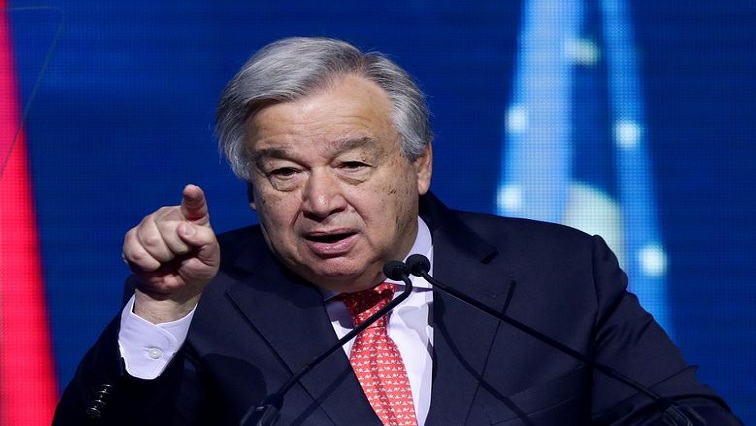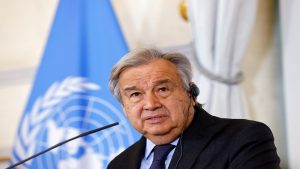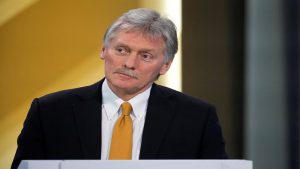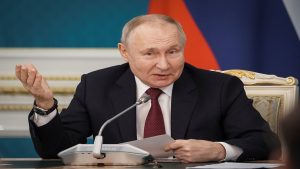The 77th Session of the UN General Assembly (UNGA) in New York this week was like none. Secretary-General of the UN Antonio Guterres shone like a star, and his stature and credibility was left enhanced amongst friends and foes alike.
Without any apparent fear or favour, Guterres shared brutally frank yet honest observations about the state of geopolitics in the present climate.
“Our world is in peril and paralysed,” Guterres told it as he saw it. Ukraine was always going to be at the top of the agenda. After being highlighted as among one of the world’s troubled hotspot, Guterres went on to remark about the plight of the Palestine people, who have lived under the subjugation of Israel for decades and remain prisoners in the land of their birth, worse than apartheid-era South Africa oppressed Black people. Yemen, Syria, Colombia, Myanmar and Iran also featured in the Secretary General’s layout of the international community’s urgent challenges.
The war in Ukraine is credited with exacerbating global food insecurity. Guterres lamented the growing disregard for multilateralism, which has been the glue that has sealed international cooperation since the establishment of the UN following the end of World War 2 in 1945.
Yet, despite the gloom that often engulf geopolitics, Guterres pointed out a sharp example of positivity that can be yielded when nations elect to give peace a chance.
Food security also featured highly in the widely welcomed speech by Guterres. Hunger and starvation can only be defeated when nations work together.
The world leaders were meeting in-person for the first time in three years since the outbreak of COVID-19 pandemic.
In an impassioned speech, an animated Guterres made a particularly persuasive argument for the human spirit’s ability to overcome adversarial relations and conquer antagonistic standpoints. He cited the “grain deal” the UN brokered between Russia and Ukraine for supplies to be allowed off the Black sea into the world in spite of the ongoing fatal hostilities in Ukraine.
The grain deal, Guterres said, “was an important lifeline and a reminder that even amid the most intense animosity compromise can be struck”.
The Ukraine war continues to divide the West on the one hand and the Russian Federation. The US-led NATO continues to pump billions of dollars’ worth of lethal weapons into the custody of the Ukrainian President Volodymyr Zelensky. Billions of dollars are also being channelled into the coffers of the Zelensky administration by the wealthy and powerful EU, the US and the West alike.
However, Russia’s President Vladimir Putin has made it categorically clear that his “military operation” in Ukraine will continue until the mission has been accomplished.
This week, in the wake of revelations of Ukraine regaining ground in several parts of the country, President Putin announced in an address to the nation that some 300 000 reservists would be called up to shore up the stretched personnel in the battle-field.
The announcement gave a clearest indication that as all sides fortify their stance, and bolster capacity, the Ukraine war could go on much longer than initially anticipated.
President Putin revealed that some 6000 Russian soldiers had lost their lives since the outbreak of the war in February. The number of casualties on the side of Ukraine remains unknown, although the figure is feared to be quite astronomical.
The country’s building and road infrastructure is also worse for wear. In some instances the Ukrainians had to destroy their own bridges to thwart Russian access to their bases.
To further compound an already dire pot pourri of an international catch-22 situation, four Ukrainian regions under the command of Moscow have announced a series of coordinated referendums before end of September to determine if the majority of their citizens would like to secede to the Russian Federation.
In 2014, after the violent Western-backed coup that led to the ouster from power of the pro-Russian Ukrainian President Viktor Yanukovych, Crimea region of eastern Ukraine voted in a swift referendum to become a part of Russia.
Now Donetsk, Luhansk, Zaporizhzhia and Kherson regions seem set to follow same route as Crimea eight years ago.
The mooted referendums have already been condemned by the US and the West as a “sham” that they would not recognise. Paraphrased, the referendums are a non-starter. Ukraine’s President Volodymyr Zelensky, who addressed the UNGA 2022 via a video link, has also vowed never to recognise any move aimed at whittling down the size of his beleaguered country, a significant portion Russian-speaking.
At the UNGA 2022, the US President Joe Biden was exhibiting his usual sense of brinkmanship. He vowed to provide material support to Ukraine for as long as it takes until Russia is defeated.
China, Turkey, Qatar and Brazil stood among nations at UNGA 2022 that are increasingly calling for a negotiated end to the Ukraine war. There are no winners in any war. All sides suffer. The loss of human life plus infrastructure destruction is invariably felt long after the war has ended.
The US-led NATO remains adamant that negotiations for peace in the Ukraine war are a moot point.
Instead of investing their efforts in ending the Ukraine war, NATO and the US will continue to pump billions of dollars’ worth of lethal arms and bottomless pit of money to Ukraine.
Russian President Vladimir Putin has recently held bilateral meetings with his Turkish and Chinese counterparts. President Xi of China and Turkey’s President Recep Erdogan has publicly stated the availability of a window of opportunity to end the Ukraine war that has become global in both effect and impact.
However, the protagonists of what geopolitical scholars refer to as “America’s proxy war” continue to show no interest in halting the hostilities.
Secretary-General Gutarres’ reassuring words amidst tangible gloom and despair were the ambience of patience and scent of peace among the world leaders stuck on their pre-conceived ideological standpoints.
“The possibility of diplomacy taking over to ease these troubles can often seem distant,” Guterres said, before adding: “Nevertheless, even as fighting rages in Ukraine, it is important to remember that diplomacy has shown its power at points during this most vicious of conflicts.” He was referencing his optimism on the shining example of a breakthrough in the grain deal between Kyiv and Moscow despite the relentless run of bad blood between the two warring neighbours.
Guterres further pointed out that “had diplomacy been more robust in the years prior to the (Ukraine) conflict, this death and destruction might have been avoided altogether”.
He continued: “This lesson should be applied to other geopolitical challenges in 2022, including US-China tensions over Taiwan and the question of Iran’s nuclear programme.”
The world, our world, “is in peril and paralysed”, Guterres lamented as world leaders pursued their sectarian geopolitical objectives.






